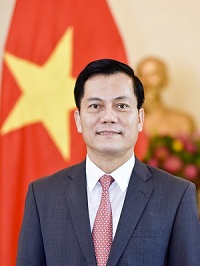This is a test version of the layout of this page. Services if you’re visiting, studying, russian embassy marriage or living in Russia. Includes information about trading with and doing business in the UK and Russia.
Is there anything wrong with this page? UK Don’t include personal or financial information like your National Insurance number or credit card details. UK To help us improve GOV. UK, we’d like to know more about your visit today.
We’ll send you a link to a feedback form. Send me the survey Don’t have an email address? All content is available under the Open Government Licence v3. Russia face legal and social challenges not experienced by non-LGBT persons. Russia has been viewed as being socially conservative regarding homosexuality, with recent polls indicating that a majority of Russians are against the acceptance of homosexuality and have shown support for laws discriminating against homosexuals. The age of consent currently stands at 16 since 2003, regardless of sexual orientation. Transsexual and transgender people can change their legal gender after corresponding medical procedures since 1997.
As far as adoptions of children: Single persons living within Russia, regardless of their sexual orientation, can adopt children. Russian children can be adopted by a single homosexual who lives in a foreign country provided that country does not recognize same-sex marriage. Russian Constitution guarantees the right of peaceful association. Nevertheless, organs of authority in Russia refuse to register LGBT organizations. Anti-gay sentiment in Russia: Public opinion in Russia tends to be hostile toward homosexuality and the level of intolerance has been rising.
Restrictive legislation in Russia: In 2013, Russia amended its federal law on the protection of children from information harmful to their health and development. This punished the promotion of ‘non-traditional sexual relations’ to minors with fines and administrative sanctions. The Committee recommended that the law should be repealed. Same-sex marriage: Neither same-sex marriages nor civil unions of same-sex couples are allowed in Russia. Military service: According to reporting in Pravda. Russians would claim they were gay as a pretense to avoid military service duty.

There is a visible LGBT community network, mostly in major cities like Moscow and Saint Petersburg, including nightclubs and political organizations. Gay pride events: There have been notable objections to the organization of gay pride parades in several Russian cities, most prominently Moscow, where authorities have never approved a request to hold a gay pride rally. As news spread of Chechen authorities’ actions, which have been described as part of a systematic anti-LGBT purge, Russian and international activists scrambled to evacuate survivors of the camps and other vulnerable Chechens but were met with difficulty obtaining visas to conduct them safely beyond Russia. The reports of the persecution were met with a variety of reactions worldwide.
The Head of the Chechen Republic Ramzan Kadyrov denied not only the occurrence of any persecution but also the existence of gay men in Chechnya, adding that such people would be killed by their own families. On 11 January 2019, it was reported that another ‘gay purge’ had begun in the country in December 2018, with several gay men and women being detained. Russia has traditionally been socially conservative on LGBT rights, with 2013 polls indicating a large majority of Russians oppose legal recognition of same-sex marriage, and support for laws restricting the distribution of “propaganda” that promotes non-traditional sexual relationships. In September 2013, a Khabarovsk teacher and gay rights activist, Alexander Yermoshkin, was fired from his two jobs as school teacher and university researcher. A week earlier, he had been attacked by members of a local neo-nazi group “Shtolz Khabarovsk”.
MPs, and their respective political parties, supported every aspect of the bill or not. A few political parties without members in the Duma have expressed some limited support for LGBT rights. Yabloko is a member of the Liberal International, and has organized public demonstrations against intolerance under the banner of building a “Russia without pogroms. The Libertarian Party of Russia, formed in 2007, has objected to the government ban on “gay propaganda” as a violation of people’s right to freedom of speech.
In 2016, two openly gay men ran for seats in the Russian duma. While they admit that they probably will not win a seat, they were supported by a liberal coalition. They are also probably the first openly gay candidates to run for seats in the Russian parliament. Unlike in many western nations, LGBT persons in Russia are not protected by specific legal protections. Violent criminal acts carried out against these persons are prosecuted as criminal offenses under Russian law, but the fact that these crimes are motivated by the sexual orientation or gender identity of the victim is not considered an aggravating factor when the court determines the sentence.



